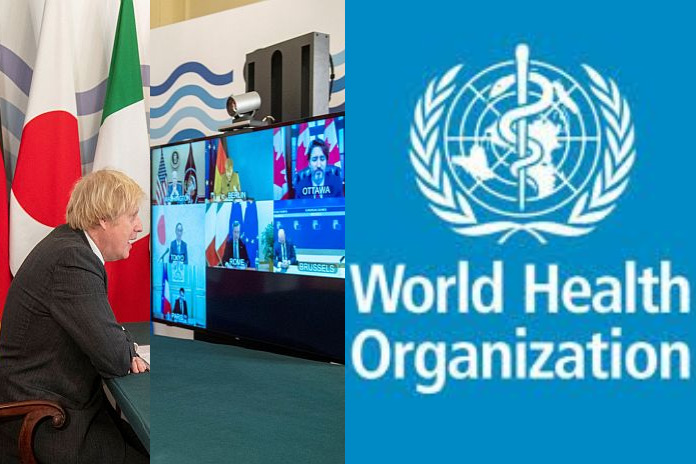By Caribbean News Global ![]()
GENEVA, Switzerland — In addition to G7 leaders resolved to work together to beat COVID-19 and build back better, at the virtual meeting hosted by UK prime minister Boris Johnson, and at the Munich Security Conference February 19, they signalled significant progress in the global response to the COVID-19 pandemic with an important underscoring of the need for global equity in access to test, treatments, and vaccines.
“G7 leaders recognised that no country can be safe until every country is safe and collectively committed over US $4.3 billion to the ACT Accelerator partnership to develop and distribute effective tests, treatments, and vaccines around the world,” said a WHO press release, outlining contributions as follows:
- The USA committed initial $2 billion to Gavi, the Vaccine Alliance for the COVAX Advance Market Commitment and a further $2 billion through 2021 and 2022, of which the first $500 million will be made available when existing donor pledges are fulfilled and initial doses are delivered to AMC countries;
- Germany committed US$ 1.8 billion with contributions to all pillars and partners of the ACT Accelerator across tests, treatments, vaccines, and health systems strengthening;
- The European Commission committed US$ 363 million for the COVAX Advance Market Commitment;
- Japan committed US$ 79 million for the COVAX Advance Market Commitment and UNITAID;
- Canada committed US$ 59 million to the ACT Accelerator.
In addition, the European Investment Bank is providing a further US$ 242 million in loan guarantees which will help the ACT Accelerator partnership to frontload future payments to speed up the response.
The UK’s commitment to join Canada, France, Norway and the European Union in sharing its additional vaccine doses with developing countries is a vital step to increase volume of vaccines available worldwide and support rapid reduction of virus transmission amongst some of the world’s most vulnerable and exposed populations.

Dr Tedros Adhanom Ghebreyesus, director-general of WHO, said: “I thank the US, Germany, the European Commission, the European Investment Bank, Japan, and Canada for their significant funding commitments. [Today’s] news shows us solidarity prevails; we can turn a corner on this pandemic by funding the only global solution to end it. History will judge us collectively and I welcome the words of support from today’s G7 Leaders and the Munich Security Council for again highlighting to the world that we have to solve this together.”
The ACT Accelerator initial needs for 2020-2021 were US $38.1 billion. Prior to today, an unprecedented mobilization of sovereign donors, private sectors, philanthropic and multilateral contributors had already committed US $ 6 billion. Considering those pledges, and costs adjustments, today’s new contributions bring the total committed to the ACT Accelerator partnership to US$ 10.3 billion and reduce the funding gap to US $22.9 billion.
Dr Seth Berkley, chief executive officer of Gavi, the Vaccine Alliance, said: “This support for the Gavi COVAX AMC shows great commitment to equitable, global access to COVID-19 vaccines and is a major boost to our efforts to end the acute phase of the pandemic. We thank G7 countries, and particularly Germany and the United States, as well as the EU, for this strong leadership in the fields of global health and global health security.”
“The next few weeks will be critical for the global COVID-19 response. Further commitments are needed to fully fund the work of the ACT Accelerator and enable the delivery of more than 2 billion doses of vaccine; medical oxygen and millions of treatment doses including dexamethasone and new products, as and when they become available; and over 900 million diagnostic tests including high-quality, lower-cost molecular tests, antigen detection RDTs (Ag-RDTs) and self-tests. This work will also support the urgent need for rapid R&D, product evaluation, and regulatory pathways for new and modified tests, treatments and vaccines to meet the needs of global response programmes and the threat of new and emerging variants,” said WHO.






